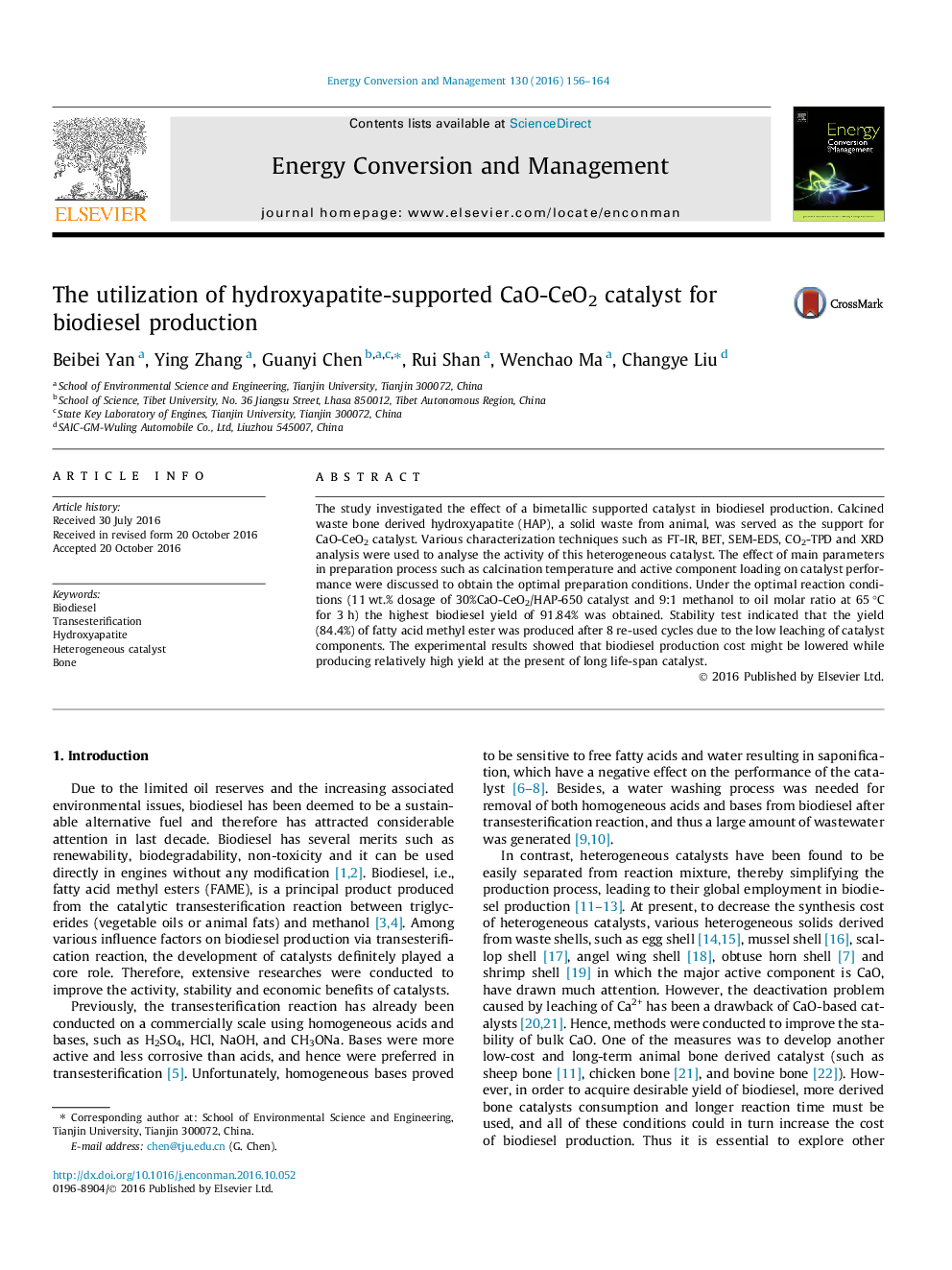| Article ID | Journal | Published Year | Pages | File Type |
|---|---|---|---|---|
| 5013188 | Energy Conversion and Management | 2016 | 9 Pages |
Abstract
The study investigated the effect of a bimetallic supported catalyst in biodiesel production. Calcined waste bone derived hydroxyapatite (HAP), a solid waste from animal, was served as the support for CaO-CeO2 catalyst. Various characterization techniques such as FT-IR, BET, SEM-EDS, CO2-TPD and XRD analysis were used to analyse the activity of this heterogeneous catalyst. The effect of main parameters in preparation process such as calcination temperature and active component loading on catalyst performance were discussed to obtain the optimal preparation conditions. Under the optimal reaction conditions (11 wt.% dosage of 30%CaO-CeO2/HAP-650 catalyst and 9:1 methanol to oil molar ratio at 65 °C for 3 h) the highest biodiesel yield of 91.84% was obtained. Stability test indicated that the yield (84.4%) of fatty acid methyl ester was produced after 8 re-used cycles due to the low leaching of catalyst components. The experimental results showed that biodiesel production cost might be lowered while producing relatively high yield at the present of long life-span catalyst.
Related Topics
Physical Sciences and Engineering
Energy
Energy (General)
Authors
Beibei Yan, Ying Zhang, Guanyi Chen, Rui Shan, Wenchao Ma, Changye Liu,
